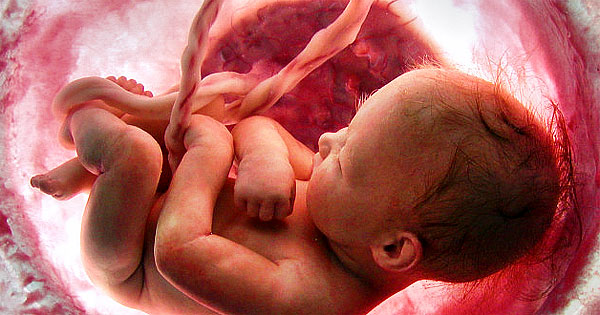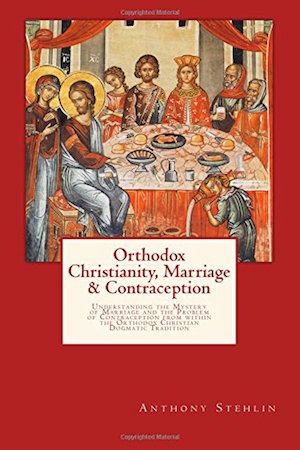Music Monday: Good, good father
 Today’s song is “Good, good Father” by Housefires:
Today’s song is “Good, good Father” by Housefires:
"We are travellers…not yet in our native land" – St. Augustine
 Today’s song is “Good, good Father” by Housefires:
Today’s song is “Good, good Father” by Housefires:
“Being human is a cultural event. No one is human by themselves and no one becomes human without the help of those around them… To learn to be a human is to live in a tradition… We must learn and be formed by the Tradition of the Spirit in the ethos of Christ’s self-sacrificing way of life.“ – Source
We are born into the family of humans inhabiting a great story of love and redemption. God himself came and lived amongst us and by uniting with our nature conquered death through his Holy Resurrection. The Christian life is one of transformation. When you were baptized and Chrismated, you were united to Christ and transformed into a new person. God is present to us in the Sacred Mysteries where we celebrate this new life with those past, present and future. It is a beautiful gift to live within a tradition as rich as the one we have all been blessed to receive. We will attempt to explore in some small ways how you too can better understand and live this tradition. Within it is a great storehouse of wisdom to draw upon so that we may live a rich life regardless of the assaults and challenges we face.
“Everything you do, all your work, can contribute towards your salvation. It depends on you, on the way you do it. History is replete with monks who became great saints while working in the kitchen or washing sheets. The way of salvation consists in working without passion, in prayer.” – Elder Sophrony of Essex
We desire perfect love, perfect truth, perfect justice, perfect unity, perfect beauty. Fr. Robert Spitzer, SJ created a system enumerating 4 levels of happiness to help guide us in discerning our actions and thoughts in light of these truths.
Level 1 – Happiness derived from material objects and the pleasures they can provide. This is the most basic level of happiness, and it can come from eating fine chocolate, driving a sports car, a cool swim on a hot day, or other forms of physical gratification. Level 1 happiness is good but limited. The pleasure it provides is immediate but short-lived and intermittent. It is also shallow; it requires no reflection, and it doesn’t extend beyond the self in any meaningful way.
Level 2 – Happiness derived from personal achievement and ego gratification. You feel Level 2 happiness when people praise you; when they acknowledge your popularity and authority; when you win in sports or advance in your career. Level 2 happiness is usually comparative because the ego measures success in terms of advantage over others. You’re happy when you’re seen as smarter, more attractive, or more important than others, and you’re unhappy when you lose the comparison game. Level 2 happiness is short-term and tenuous. You can be happy that you won today, and then anxious you might lose tomorrow. Level 2 is not inherently bad because we all need success, self-esteem, and respect to accomplish good things in life. But when Level 2 happiness – self-promotion – becomes your only goal, it leads to selfabsorption, jealousy, fear of failure, contempt, isolation, and cynicism.
Level 3 – Happiness derived from doing good for others and making the world a better place. Level 3 happiness is more enduring because it is directed toward the human desire for love, truth, goodness, beauty, and unity. It is capable of inspiring great achievements because it unites people in pursuit of the common good, whereas Level 2 happiness divides people. Level 3 is empathetic, not self-absorbed, and it looks for the good in others, not their flaws. It sees life as an opportunity and an adventure, not an endless series of problems to overcome. Because people have limits, Level 3 happiness also has its limits. None of us are perfect, so we can’t find perfect fulfillment in other people.
Level 4 – Ultimate, perfect happiness. When others fall short of our ideals, or we fall short ourselves, we’re disappointed. This disappointment points to a universal human longing for transcendence and perfection. We don’t merely desire love, truth, goodness, beauty, and unity; we want all of these things in their ultimate, perfect, never-ending form. All people have this desire for ultimacy, which psychologists call a desire for transcendence – a sense of connection to the larger universe. Some express this desire through spirituality and religious faith. Others express the same longing through philosophy, through art, or through scientific efforts to solve the mysteries of life and the universe.
What path will you choose? What can we know? What should we know? When challenged, how will you respond? Why do you believe? Why are you a Christian? What does Christ mean to you today? What should you know, think or believe? We will attempt to answer some of these in ways which are comprehensible and actionable.

In January there was the annual “March For Life” in Washington DC. Unfortunately, I couldn’t go this year, but thanks to Facebook, I got to defend life in a different way, through Facebook. Many of my pro-life friends posted about the March on Facebook, and these posts were not without their detractors…

As I browsed my newsfeed, one objection which was made repeatedly was some variation of the following:
“The fetus is a potential life”
Is this true? How might we respond to this statement?
Read more

 I’m reading a few books at the moment, but the one I’d like to mention today is Orthodox Christianity, Marriage & Contraception by Anthony Stehlin. I’m only about a third of the way through it so far, but I really wanted to do a short post concerning something mentioned in the first chapter….
I’m reading a few books at the moment, but the one I’d like to mention today is Orthodox Christianity, Marriage & Contraception by Anthony Stehlin. I’m only about a third of the way through it so far, but I really wanted to do a short post concerning something mentioned in the first chapter….
A few months ago I decided to join an Eastern Orthodox online forum to try and soak up some more eastern knowledge. I actually found the group incredibly hostile to Catholics (especially Eastern Catholics), but that’s a post for another time.
Members of the group stated again and again that teaching in Eastern Orthodoxy has never changed, something which they contrasted to the supposed deviations of Catholicism. In response to this, I asked the group about the Eastern Orthodox position concerning contraception…

To bear a grudge and pray, means to sow seed on the sea and expect a harvest.
– St. Isaac the Syrian
When Catholics argue against contraception from Scripture, they typically cite Genesis 38:9, where a man named Onan chooses to consummate his marriage, but purposefully prevents conception when he “spilled the semen on the ground”.
Since contraception is virtually universally accepted within Protestantism, most Protestants strongly criticize the Catholic analysis and use of this passage. However, in so doing, they must also reject the exegesis of some of the founding members of Protestantism…
Martin Luther: “Onan must have been a malicious and incorrigible scoundrel. This is a most disgraceful sin. It is far more atrocious than incest or adultery. We call it unchastity, yes, a Sodomitic sin. For Onan goes into her; that is, he lies with her and copulates, and when it comes to the point of insemination, spills the semen, lest the woman conceive. Surely at such a time the order of nature established by God in procreation should be followed.”
– Luther’s Works 7, 20-21
John Wesley: “Onan, though he consented to marry the widow, yet to the great abuse of his own body, of the wife he had married and the memory of his brother that was gone, refused to raise up seed unto the brother. Those sins that dishonour the body are very displeasing to God, and the evidence of vile affections. Observe, the thing which he did displeased the Lord – And it is to be feared, thousands, especially single persons, by this very thing, still displease the Lord, and destroy their own souls.”
– Wesley, Notes on the First Book of Moses, comment on 38:7
John Calvin: “I will content myself with briefly mentioning this, as far as the sense of shame allows to discuss it. It is a horrible thing to pour out seed besides the intercourse of man and woman. Deliberately avoiding the intercourse, so that the seed drops on the ground, is doubly horrible. For this means that one quenches the hope of his family, and kills the son, which could be expected, before he is born.
The wickedness is now as severely as is possible condemned by the Spirit, through Moses, that Onan, as it were, through a violent and untimely birth, tore away the see of his brother out the womb, and as cruel and shamefully was thrown on the earth. Moreover he thus has, as much as was in his power, tried to destroy a part of the human race. When a woman in some way drives away the seed out the womb, through aids, then this is rightly seen as an unforgivable crime*. Onan was guilty of a similar crime, by defiling the earth was his seed, so that Tamar would not receive a future inheritor.”
– Calvin, Commentary on Genesis


* Don’t worry John, there’s always the Sacrament of Confession